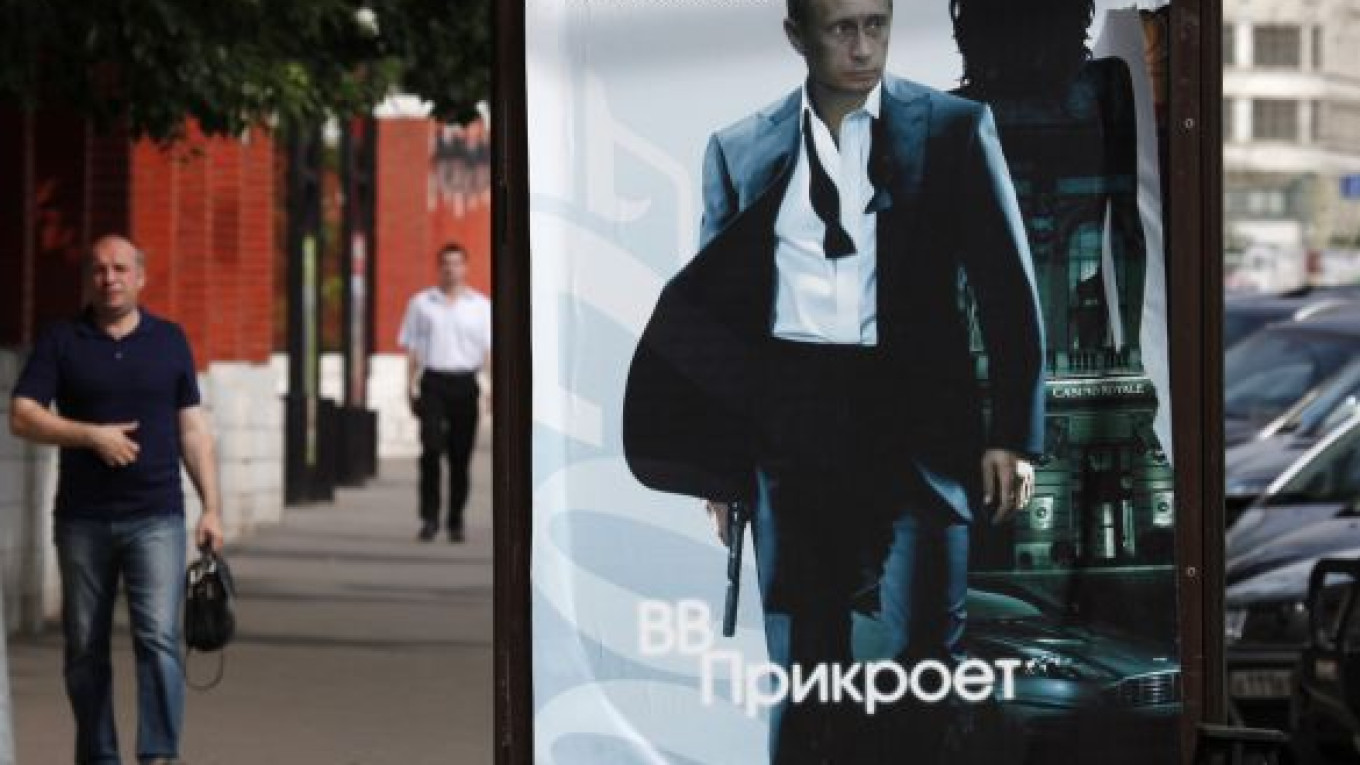BERLIN —German politicians have criticized an independent awards committee for deciding to give Prime Minister Vladimir Putin a prize standing for freedom and democratic change.
Government human rights commissioner Markus Löning said the choice undermined the Quadriga award, which will be handed out on the Oct. 3 national holiday celebrating German unification in 1990, and others questioned Putin's democratic credentials.
"It is downright cynical to award Putin the Quadriga prize and put him in the same group with Mikhail Gorbachev and Vaclav Havel," Löning, a member of the Free Democrats who rule with Chancellor Angela Merkel's conservatives, told Der Spiegel magazine's online edition. "It devalues the prize."
Former Soviet leader Gorbachev and former Czech President Havel are among previous winners of the award.
Löning's objections were echoed by a senior lawmaker in Merkel's conservatives. Merkel herself has criticized Putin over human rights in the past.
Erika Steinbach, chair of the parliamentary committee on human rights, said she worried about lasting damage to the award first presented in 2003. It was inspired in part by former U.S. President Bill Clinton during a visit to Berlin.
"If the award's committee doesn't send a strong signal for human rights and revoke its decision, the Quadriga prize will be permanently devalued," Steinbach said of the award that is popular in Germany but little-known abroad.
Putin, a former KGB spy who was once stationed in Germany, was chosen for his contribution to the stability and reliability of German-Russian relations, a Quadriga spokesman said.
Opposition groups in Russia say Putin led a clampdown on civil liberties during his presidency from 2000 to 2008. The United Nations and the U.S. State Department have criticized Russia's human rights record, and the European Parliament urged Russia last week to guarantee free elections.
The Kremlin has dismissed such criticism.
The award annually honors people who are "role models for and from Germany" and is "dedicated to all of those whose courage tears down walls and whose commitment builds bridges."
A leader of Germany's opposition Greens party, Cem Ozdemir, announced that he was quitting the Quadriga board of trustees over the choice of Putin and said: "The Quadriga should be given to people who promote democracy."
Independent rights watchdog Human Rights Watch said it was surprised that Putin would receive an award that "invokes the spirit of 1989," when the communist Eastern Bloc collapsed.
"During his presidency and beyond, Putin presided over an unmistakable reversal in civic freedoms in Russia," Germany Human Rights Watch director Wenzel Michalski said.
Putin has enjoyed close relations with former Chancellor Gerhard Schröder and helped the retired German leader secure the post of chairman of the board of Nord Stream AG, at a Russia-German energy company.
A Message from The Moscow Times:
Dear readers,
We are facing unprecedented challenges. Russia's Prosecutor General's Office has designated The Moscow Times as an "undesirable" organization, criminalizing our work and putting our staff at risk of prosecution. This follows our earlier unjust labeling as a "foreign agent."
These actions are direct attempts to silence independent journalism in Russia. The authorities claim our work "discredits the decisions of the Russian leadership." We see things differently: we strive to provide accurate, unbiased reporting on Russia.
We, the journalists of The Moscow Times, refuse to be silenced. But to continue our work, we need your help.
Your support, no matter how small, makes a world of difference. If you can, please support us monthly starting from just $2. It's quick to set up, and every contribution makes a significant impact.
By supporting The Moscow Times, you're defending open, independent journalism in the face of repression. Thank you for standing with us.
Remind me later.


